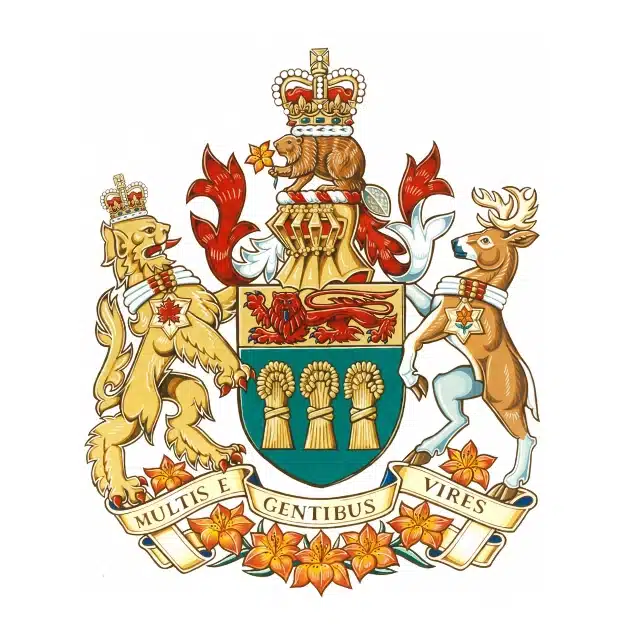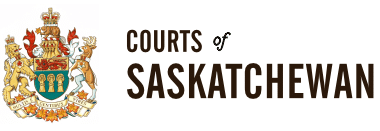Self-Represented Litigants
Court of King's Bench | SaskatchewanCourts of Saskatchewan
Self-Represented Litigants
Court of King’s Bench
It is best for a person with a case in the Court of King’s Bench to be represented by a lawyer. An individual can represent themselves before the Court of King’s Bench.
The information on this site is intended to provide legal information about representing yourself in the Court of King’s Bench. It is not a substitute for professional legal advice, such as whether and what type of application to make. It also does not bind the Courts.
For more specific information about your case, as well as information about legal options and strategies, you may wish to consult with a lawyer.
The information found on this website and in the Guidebooks is not a substitute for legal advice.

INFORMATION LINKS
INTRODUCTION
FILE OR REQUEST DOCUMENTS
RULES, FORMS & PRACTICE DIRECTIVES
SELF-REPRESENTED
GUIDES
LEGAL
HELP
Self-Represented Litigants
INTRODUCTIONINTRODUCTION
The Court of King’s Bench is the Superior Trial Court in Saskatchewan, hearing trials in civil, family, and criminal matters, along with appeals from some decisions of the Provincial Court of Saskatchewan and other decision-making bodies in the province. The Court also has jurisdiction over probate and administration of estates.
The King’s Bench Act, SS 2023, c28 provides that the Court consists of a Chief Justice, an Associate Chief Justice, and 36 other judges. The legislation also provides for supernumerary judges who hear a reduced number of matters.
There are 10 permanent court locations across the province, referred to as “judicial centres”. Each judicial centre has its own Local Registrar who deals with matters specific to their own court location. The Court has one Executive Legal Officer and one Registrar for the province. There is also a Registrar of Bankruptcy that deals with bankruptcy matters.
Self-Represented Litigants
FILE OR REQUEST DOCUMENTSFILE OR REQUEST DOCUMENTS
Self represented litigants will be required to file or request documents from the Court. Here are some commonly asked questions:
Q: How can I file documents with the Court?
A: The Court accepts filing in person, by regular mail, courier, fax, or as otherwise directed by the Court. The Court does not currently have e-filing system and does not accept materials for filing by email.
Filing received via fax is charged $1.00 per page on top of the filing fee (if applicable).
Q: If I file by fax, how do I pay the court fees?
A: If filing by fax, a cover sheet should be included with the sender’s contact information. The Court will contact you for payment and can accept a credit card over the phone. The Court can also accept certified cheque or money orders, which may be mailed in or dropped off in person.
Q: How can I request documents from a court file?
A: To request documents, you can go to the Local Registry Office in the courthouse, or mail or fax a request. There is a fee, so if you are faxing or mailing your request, provide a contact name and number so that the court office can phone you to take payment by credit card.
Typically, you will need to attend the Registry Office in the judicial centre with carriage of the matter to view the material and obtain copies of any documents. Court officials may provide a written response, although in some cases, there are too many records or pages to make that feasible.
For locations and contact information, please refer to the Court of King’s Bench Court Offices & Court Contacts page on our website.
For information on what documents can be accessed, please refer to the Public Access Guidelines document or the information contained on the Access To Court Records page on our website.
In relation to accessing documents on criminal files, please refer to King’s Bench Criminal Practice Directive #12.
Self-Represented Litigants
RULES, FORMS & PRACTICE DIRECTIVESRULES, FORMS & PRACTICE DIRECTIVES
The practice and procedure of the Court of King’s Bench is governed by applicable legislation, The King’s Bench Rules, and Court-issued Practice Directives. The practice and procedure is also informed by previous decisions of Canadian courts.
Procedure in civil matters is governed by The King’s Bench Act, The King’s Bench Rules, practice directives and case law. The King’s Bench Rules govern the practices and procedures to be followed in matters that are brought before the Court. The Court has specific forms that must be used for different court procedures, as referenced in The King’s Bench Rules.
Procedure in criminal matters is governed by the Criminal Code, The Court of King’s Bench for Saskatchewan Summary Conviction Appeals Rules, practice directives and case law.
Procedure in family matters is governed by The King’s Bench Rules, practice directives, and various provincial and federal legislation, including The Family Property Act, The Family Maintenance Act, the Divorce Act, and The Child and Family Services Act.
Other statutes and rules may govern in specific situations, such as appeals from administrative tribunals. Other statutes and regulations may include other required forms and documents that must be filed with the Court.
Links to the King’s Bench Rules, King’s Bench Forms, and King’s Bench Practice Directives can be found on the Rules, Forms & Practice Directives page on our website.
Self-Represented Litigants
SELF-REPRESENTED GUIDESSELF-REPRESENTED GUIDES
The guides on this website provide legal information and will assist you with court process by providing a general overview of the process and the forms required. They are not a substitute for legal advice. A judge of the court is not bound by the information in these guides.
SELF-REPRESENTED APPEAL GUIDES
Self-Represented Litigants
LEGAL HELPLEGAL HELP
There are organizations that can provide you with legal information, legal advice, and referrals to a variety of services in your community.
- Pro Bono Law Saskatchewan operates free legal clinics at various sites across the province.
- The Public Legal Education Association (PLEA) is a source for free legal information on a variety of legal issues. PLEA Saskatchewan hosts a Family Law portal that provides detailed information on divorce and separation issues, including a forms wizard.
- The Law Society of Saskatchewan offers information on Finding Legal Assistance as well as a searchable Legal Assistance Directory.
- Legal Aid provides legal assistance in criminal and family law to individuals who are eligible. You can find out if you qualify for legal aid for assistance with family and criminal cases through the Legal Aid office nearest you: Find a list of Legal Aid offices.
- CLASSIC Law operates walk-in clinics and legal advice clinics in Saskatoon.
- Family Law Information Centre provides a number of self-help kits and information sessions for those interested in representing themselves in Family Court.
Not sure of the definition of a word?
Check out the Legal Glossary.
COURT RESOURCES
EXTERNAL RESOURCES
SOCIAL MEDIA
